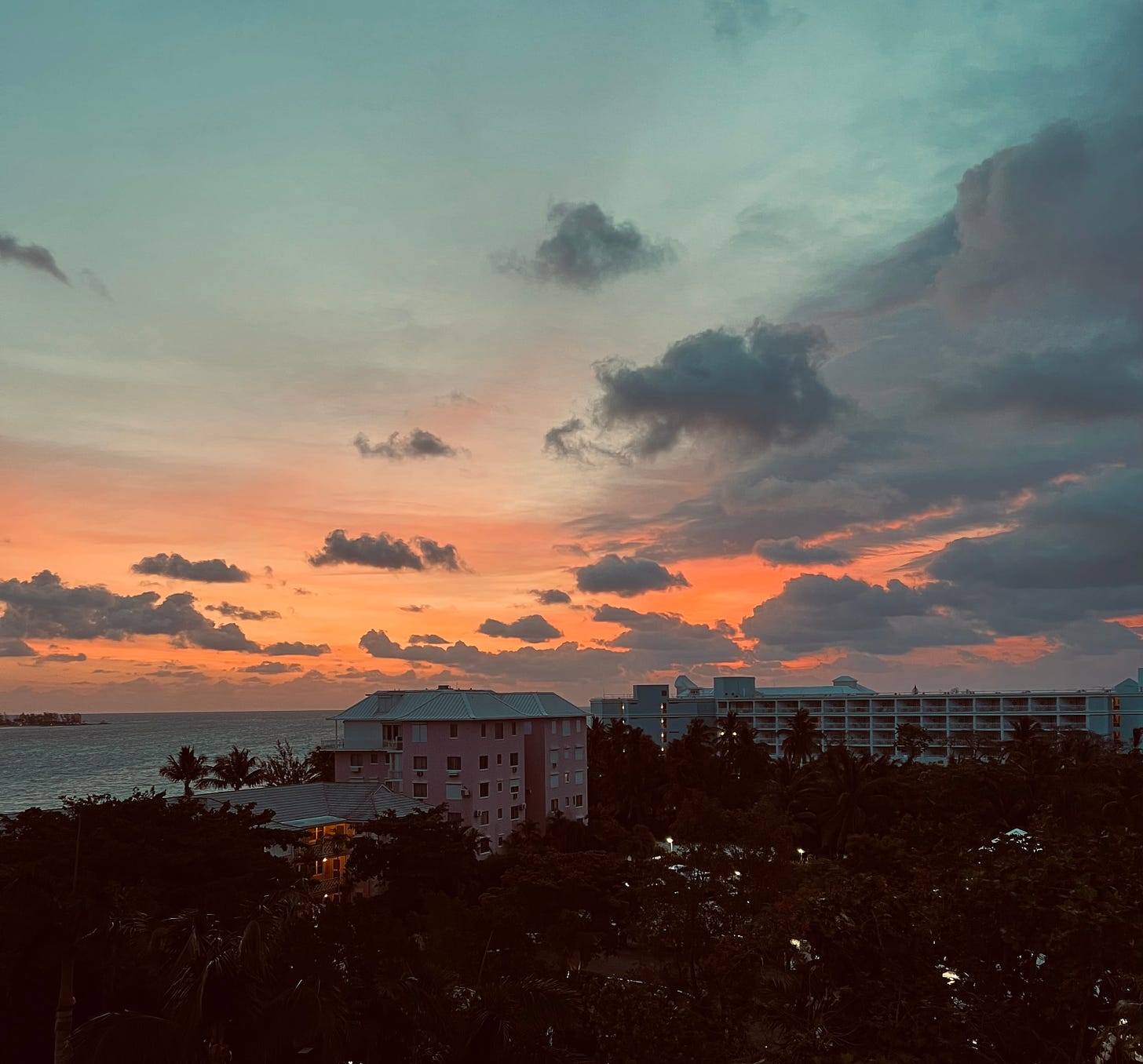Bahamas, Bank Runs, Buffett vs. Druckenmiller
"We are enormously risk averse. We want a mathematical edge in every transaction."
Hello everyone,
I’ve been spending the last few days visiting friends in the Bahamas, my first time here. Apparently, there is such a thing as island time and it’s not just about changing to a more leisurely pace. It’s also about limiting rigid scheduling in a quest for efficiency and achievement and instead leaving more of the day open.
This might be the first time I’ve taken a trip without making any real plans. I met an internal resistance anytime I started and decided to take it as an experience of going with the flow of things instead. I brought a bunch of books which have remained mostly untouched. Instead, I dipped into the local bookshelf and had open space for new connections and people who appeared. It’s easier to say yes to adventure when there is no existing structure you’re committed to.
So far it’s been wonderful little trip that has taken me to hidden infinity pools, past mysterious crypto hideouts, and to the cavernous casino of Baha Mar, a massive hotel development where tourists are shaken down in style with overpriced drinks and slot machines. And even though the world of crypto has fallen on hard times, the mood overall still seems boozy and flamboyant. Then again, Bitcoin has been holding up (trading notes on the future of crypto and related conspiracy theories seems to be one of the island’s favorite pastimes). Did I mention that Nassau has a new hotel, Jimmy Buffett’s Margaritaville Beach Resort? Maybe I’m the only one surprised to learn that his song has morphed into a billion+ brand (power laws rule everything in media).

That said, Nassau can be a conflicting experience with vibes of the White Lotus. The brightly colored downtown caters to the stream of tourists unleashed from mountainous cruise ships to eat, shop, and retreat (cruise ship visitors spend only a fraction of an overnight visitor). Abandoned buildings and treacherous potholes stand in contrast to the island’s gorgeous wealthy enclaves like Lyford Cay.
But back to Buffett. Visiting a casino is the perfect contrast to the Berkshire shareholder meeting. People visit to have fun and spend, to be pleasantly numbed and seduced into making bad bets. Visitors to Omaha take the opposite side. They might own tens of millions of Berkshire shares and still bring their own bagged lunch. In 2000, Buffett commented on his philosophy of placing bets in markets and insurance:
We are enormously risk averse. We want a mathematical edge in every transaction. … We are not risk averse if there were an earthquake in California today. That doesn’t bother us as long as the math is in our favor.
The past couple of weeks have been a rare chance to hear both Buffett and Druckenmiller speak (including on one shared topic, the banking crisis). Both have been wildly successful in markets yet with often seemingly diametrically opposed philosophies.
Both are keenly focused on survival. Druckenmiller does it by allowing himself to frequently change direction. Last year I touched on this with Michael Mauboussin in relation to Druckenmiller’s mentor:
Purportedly George Soros made money on fewer than 30% of his trades. And that alone is worth letting settle in a bit. It means that he made a lot of investments that lost money. They probably did not lose much money. And when he did make money, he made a lot of money, both by betting a lot of money and by letting it run simultaneously.
Buffett on the other hand focuses on being right about the business and operating with a margin of safety. In 2014, he noted how seldomly he’d lost money on his stock picks:
In the past 50 years, we have only once realized an investment loss that at the time of sale cost us 2% of our net worth. Twice, we experienced 1% losses. All three of these losses occurred in the 1974-1975 period, when we sold stocks that were very cheap in order to buy others we believed to be even cheaper.
👉 The remainder of this post and the opportunity to reflect, share, and discuss with me in the comments are reserved for the community of subscribers who support my work. If you would like to join the conversation, consider subscribing.
Keep reading with a 7-day free trial
Subscribe to Frederik's Age of Alchemy to keep reading this post and get 7 days of free access to the full post archives.




